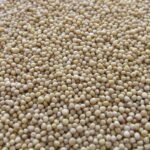Ever thought about the humble onion? That staple that we take for granted in our kitchens? Well, buckle up because this article is all about peeling back the layers (pun absolutely intended!) and revealing the remarkable truths about this common yet extraordinary vegetable. From its roots to its place in your dinner plate, you’ll come to appreciate the onion in a whole new light. So, let’s dive right in!
The Origins of Onions
Believe it or not, onions have been sprucing up our meals for a whopping 5000 years or more. Originally cultivated in Asia, this bulbous plant quickly found its way across the globe, thanks to its durability, ease of growth, and potent flavor. But where do onions come from, really?
Most historians believe onions first sprouted in central Asia, possibly Iran and West Pakistan. From there, these tear-inducing delights spread out, reaching almost every corner of the world. Heck, they even have a special place in the tombs of Egyptian pharaohs, signifying eternity with their circular form. Talk about an illustrious lineage!
Onion Types and Consumption Forms
With so many onion varieties out there, it’s like an all-you-can-eat buffet! From red to white, yellow, and even the petite shallots, the list goes on. And each has its unique flavor profile and best use in cooking. But how do you eat these tear-jerkers?

Funny you should ask, because the ways to enjoy onions are as diverse as the types themselves. Raw in salads, caramelized in a hot pan, or deep-fried into crunchy onion rings – the world, or rather the onion, is your oyster! And let’s not forget about onion powder and flakes for a quick flavor boost to any dish.
Nutritional Profile and Benefits
Now, here’s the real kicker: the nutritional benefits of onions. Sure, they add a zing to our meals, but there’s more to these power-packed bulbs than meets the eye.
First off, onions are low in calories but high in vitamins and minerals. They are especially rich in vitamin C, a nutrient involved in regulating immune health, collagen production, and iron absorption. Let’s delve deeper into their nutritional profile:
| Nutrients | Amount per 100g |
|---|---|
| Calories | 40 |
| Protein | 1.1g |
| Fat | 0.1g |
| Carbohydrates | 9.34g |
| Fiber | 1.7g |
| Sugars | 4.24g |
| Vitamin C | 7.4mg |
But wait, there’s more! Research suggests that onions may lower heart disease risk factors, like high blood pressure and elevated triglyceride levels. They also boast potent antioxidant properties that may combat inflammation and promote better digestive health. So, adding onions to your diet could be a recipe for good health!
Frequently Asked Questions
Now that we’ve shed some light on the wonders of onions, let’s tackle some frequently asked questions:
Do onions lose their nutrients when cooked
While some nutrients like vitamin C may decrease with heat, cooking onions can actually increase some beneficial compounds like flavonoids. So, you won’t lose out on the health benefits, whether you like them cooked or raw.
Are onions good for weight loss?
Indeed! Low in calories and high in fiber, onions can help you feel full without adding many calories to your meal. So, they can be a helpful ally in your weight loss journey.
Can you eat onions every day?
For sure! As long as you’re not allergic or sensitive to them, including onions in your daily diet could provide numerous health benefits.
The Bottom Line
So there you have it – onions, the unsung heroes of our kitchens, are nutrient powerhouses worth our attention. Far from being just a flavor booster, they offer a bounty of health benefits and are undeniably a valuable addition to any meal.
Next time you find yourself shedding a tear while chopping onions, remember: they’re tears of joy for the healthy choice you’re making. Here’s to onions – the teary-eyed health warriors!
Fun Facts:
- The largest onion ever grown weighed 10kg 14g and was grown by Tony Glover (UK) in 2014
- Ancient Egyptians worshipped onions, viewing their circular shape and concentric rings as symbols of eternal life.
- There’s an entire museum in Texas, USA dedicated to the Vidalia onion, a type of sweet onion
Source: National Geographic, USDA Food Data Central, NCBI




